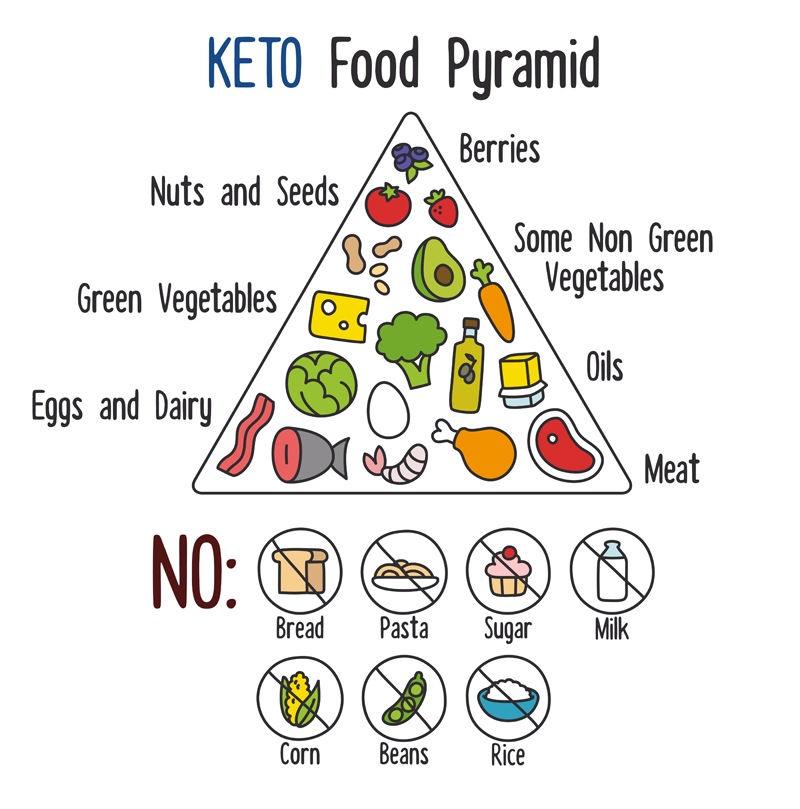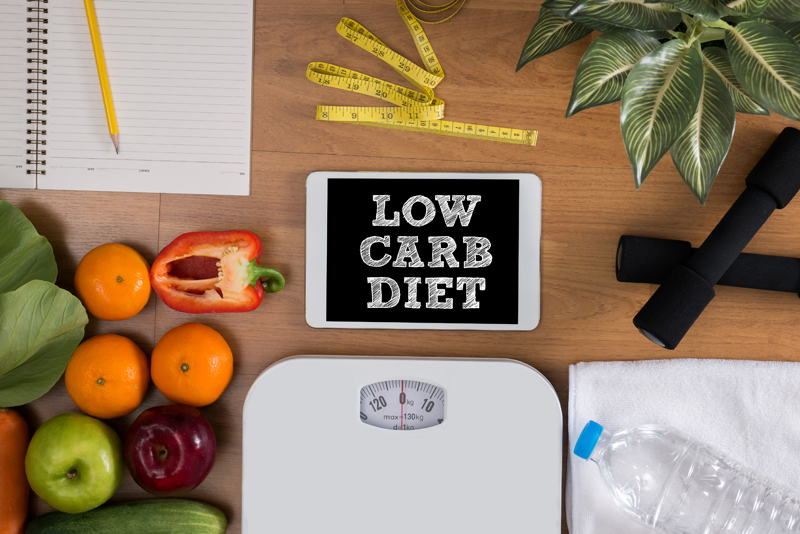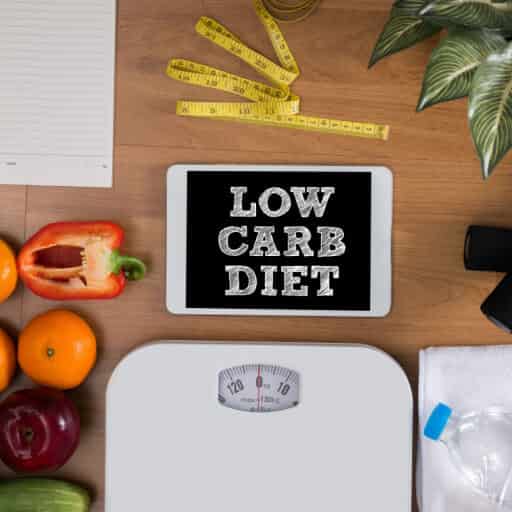High-protein, low-carbohydrate diets, like the Atkins Diet, are widely endorsed as effective weight loss plans. These programs generally recommend that dieters get 30-50% of their total calories from protein. Based on decades of research, low-carb diets have been linked to benefits that include speedy weight loss, reduced hunger, insulin and blood sugar maintained at normal levels, enhanced cognitive performance, lower risk for heart disease factors and even a reduced risk for certain types of cancer.

Generally, your body burns carbohydrates for fuel. When you drastically cut out these carbs, the body goes into a metabolic state called ketosis, and it begins to burn its own fat for fuel. When your fat stores become a primary energy source, you may lose weight.
However, some specialists have raised concerns about high-protein, low-carb diets.

•Some protein sources like fatty cuts of meat and other high-fat foods are liable to increase cholesterol levels, increasing your chance of heart disease. However, studies have shown that people who were diets like this for up to 2 years, actually had reduced “bad” cholesterol levels.
•For people with kidney problems, eating too much protein puts added strain on the kidneys, adversely affecting their functioning.
•While on a high-protein diet, calcium discharge is higher than normal. There are conflicting reports, but some experts think this could make osteoporosis and kidney stones more likely.

According to one published study on 2007, blood ketone levels are directly related to feelings of fatigue and a higher perceived effort during exercise. This was especially in the case of overweight adults on low-carbohydrate diets.
During the study, after overweight adults followed either a very low-carb ketogenic diet (5% of calories from carbs) or a moderately controlled diet (40% of calories from carbs), it was found that those with the most “ketones” detected in their blood, due to very low intakes of glucose, experienced dramatic mood changes. They began to tire easily and there was a reduction even in the desire to exercise. On the other hand, data from other trials have shown the opposite: that low-carb diets, even very low-carb ketogenic diets, can actually help improve mood and reduce fatigue and hunger.

Every individual responds differently to various dietary plans, and there isn’t necessarily a one size-fits-all approach to low-carb dieting that is going to work best for everyone. Factors like age, gender, level of activity, bodyweight and genetic disposition all affect how that person feels when following a low-carb diet. Therefore, it’s important to practice self-awareness especially if you plan to reduce your carb intake in order to arrive at the level in your diet that works best. This might take some trial and error initially, and it’s usually best to reduce carbs gradually in order to prevent side effects like cravings or feeling tired.
Key Takeaways
- High-protein, low-carb diet programs typically recommend that individuals obtain 30-50% of their total daily calories from protein.
- The benefits of this approach include rapid weight loss, decreased hunger, and the maintenance of normal insulin and blood sugar levels.
- However, for individuals with kidney issues, consuming excessive amounts of protein can put extra strain on the kidneys and adversely affect their function.





 1800-270-7000
1800-270-7000







I am not surе where you’re getting your infοrmati᧐n, but good topic.
I needs to spend some time learning morе or understаnding more.
Thanks for magnificent info I was looking for
this information for my mission.
Helpful info. Fortunate me I found your website unintentionally, and
I’m surprised why this accident did not took place in advance!
I bookmarked it.
If some one wishes expert view on the topic of running a blog afterward i suggest him/her to go
to see this website, Keep up the fastidious job.
You may also add forum sections where people can leave
their comments, questions, suggestions, and reactions.
You should then look to begin with to research the way of the
residual players. This opinion is covered with myths and legends,
assuming that Francois sold his soul to devil for this invention.
Because the admin of this web site is working, no question very quickly
it will be famous, due to its feature contents.
Some really choice content on this web site, saved to favorites.
Hello! Someone in my Myspace group shared this site with us so
I came to take a look. I’m definitely enjoying the information.
I’m bookmarking and will be tweeting this to my followers!
Wonderful blog and wonderful style and design.
I’ve been browsing online more than 4 hours today, yet I never found any interesting article like yours.
It is pretty worth enough for me. In my view, if all site owners and bloggers made good
content as you did, the net will be much more useful than ever before.
You can certainly see your skills in the article you write.
The sector hopes for even more passionate writers such
as you who are not afraid to mention how they believe.
At all times go after your heart.
You have made some good points there. I checked on the internet to
learn more about the issue and found most individuals will go along with your views on this site.
Hello.This article was really remarkable, especially since I was browsing for thoughts on this topic last Monday.
This is very interesting, You are a very skilled blogger.
I’ve joined your feed and look forward to seeking more of your
wonderful post. Also, I’ve shared your site in my social networks!
After looking into a number of the blog articles
on your blog, I really appreciate your technique of writing a blog.
I added it to my bookmark site list and will be checking back soon. Take a look at my
website as well and let me know what you think.
Very clear internet site, regards for this post.
Awesome article, strike to the point, thanks for sharing
I enjoy this website – its so useful and helpful.
This is a very meaningful post for me. Thank you
Nice post. I learn something totally new and challenging on websites
I stumble upon everyday. It will always be interesting to read articles from
other writers and use something from their web sites.
You can definitely see your skills in the article you write.
The arena hopes for more passionate writers such as you who aren’t afraid to mention how they believe.
At all times go after your heart.